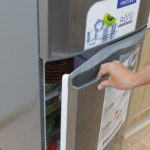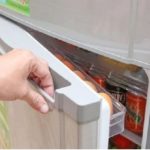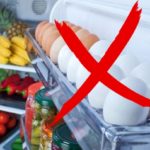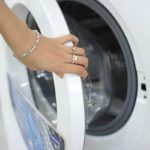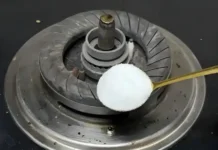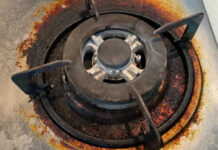1 The refrigerator door is open
Excessive items on the refrigerator door
Placing heavy objects such as water bottles and glass jars on the refrigerator door can cause the door to bear too much weight and become pulled down, resulting in the door not sealing properly and cold air escaping. It is recommended to remove these heavy objects to reduce the weight on the refrigerator door.

The refrigerator is not level
If the front of the refrigerator is tilted forward, the door may not close tightly due to the weight pulling it back. It is important to check the balance of the refrigerator and adjust it accordingly. Placing the refrigerator on a flat surface or using a base is recommended to avoid this issue.

The hinges are misaligned
Over time, the hinges of the refrigerator may stretch and sag, causing the door to be pulled open and not properly sealed. Adjusting and tightening the hinges with a screwdriver can resolve this issue.
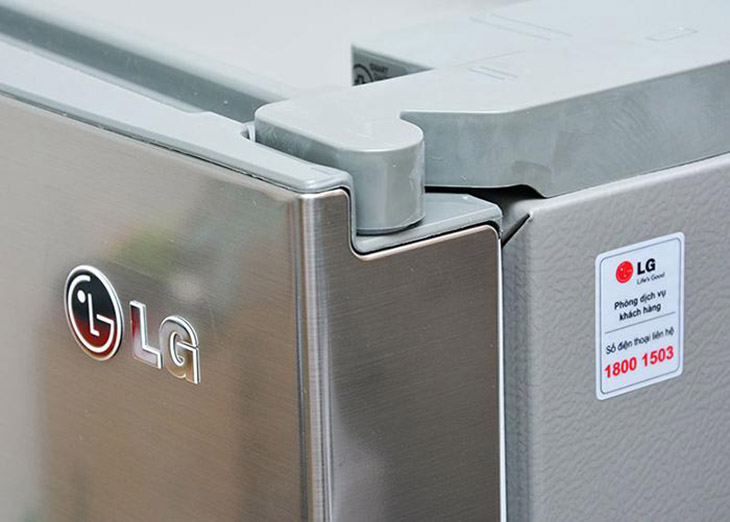
The cabinet gasket is rusty
The gasket on the refrigerator door is responsible for preventing cold air from escaping. If the gasket is damaged or dirty, it can cause the refrigerator to not maintain a sufficient temperature. Regularly cleaning the gasket can solve this issue, and replacing a damaged gasket is necessary.
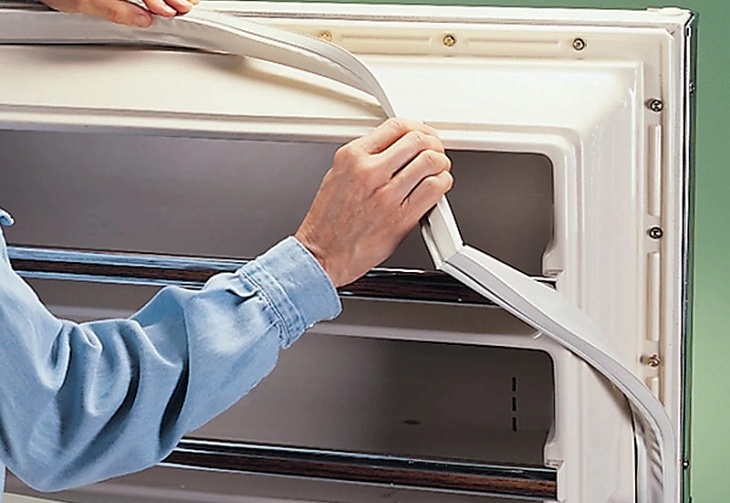
If the gasket is cracked, torn, or hardened, replacing it is recommended. Regularly checking the gasket can prevent energy wastage caused by cold air leakage.
2 Consequences of an open refrigerator door
Poor food preservation
An open refrigerator door leads to cold air leakage and inadequate temperature to properly preserve the food. This can result in food spoilage, rancidity, and unpleasant odor.

Increased power consumption
An open or poorly sealed refrigerator door causes cold air to escape, making the refrigerator work harder to maintain the required temperature. This leads to higher power consumption.
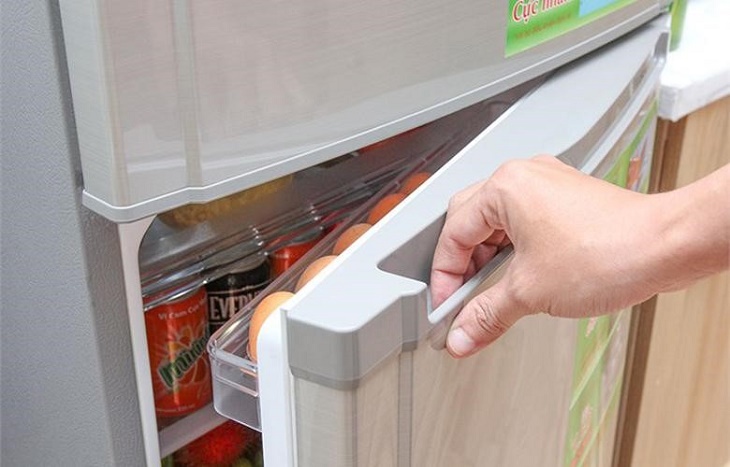
Damaged cooling system
If the refrigerator door doesn’t close tightly, the cooling system has to work continuously to reach the desired temperature. This can lead to long-term damage to the cooling system.
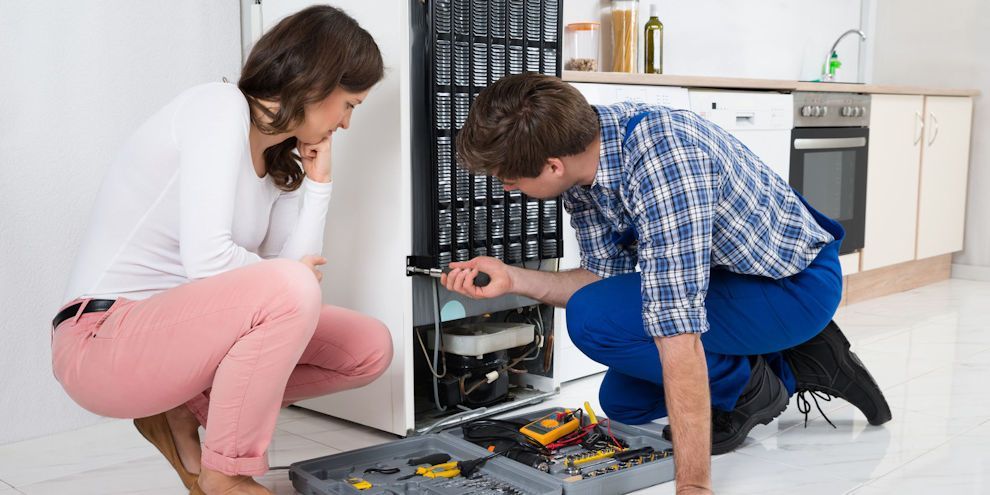
Damage to the defrost unit
If the refrigerator door is not closed tightly, humidity can enter the refrigerator, causing ice to form on the indoor unit. This puts extra strain on the defrost unit and reduces its effectiveness over time.
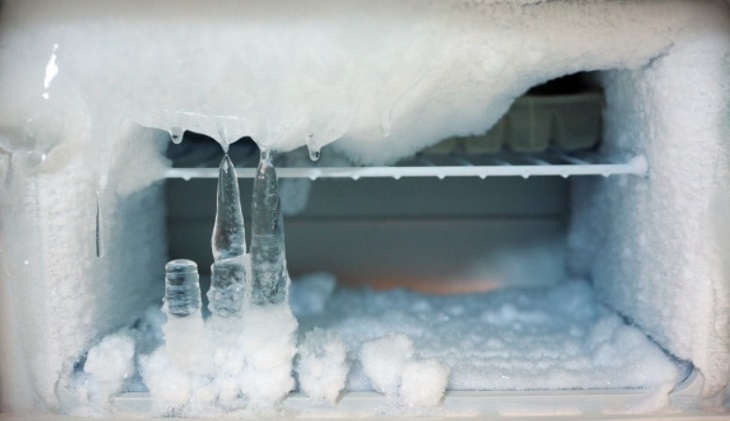
Noisy refrigerator
An open refrigerator door causes the refrigeration unit to work excessively, resulting in noise. It can also lead to the formation of snow in the indoor unit, causing the fan blades to rub against the snow and create additional noise.
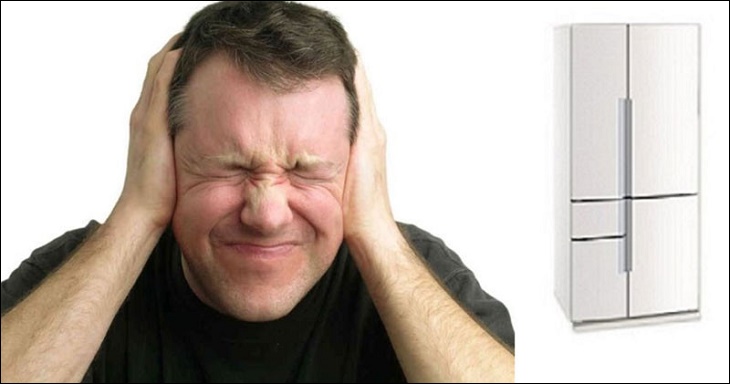
Water leakage from the refrigerator
When the refrigerator door is open or the rubber gasket is not functioning properly, ice inside the refrigerator can melt into water and cause leakage. This can also happen when snow accumulates and melts in the auto-off mode.
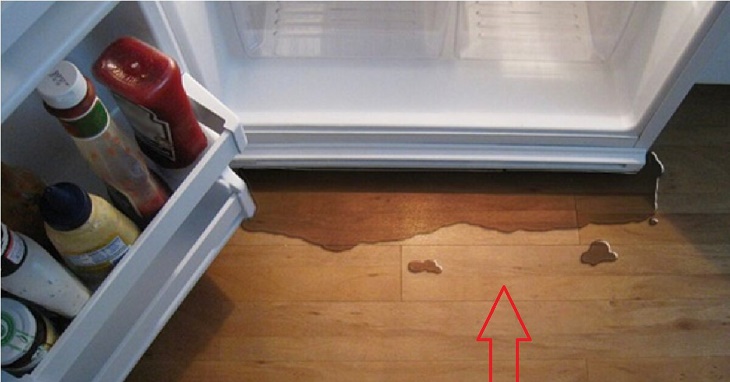
Refrigerator not running
An open refrigerator door causes the unit to work at full capacity, leading to severe damage and the refrigerator not functioning properly.
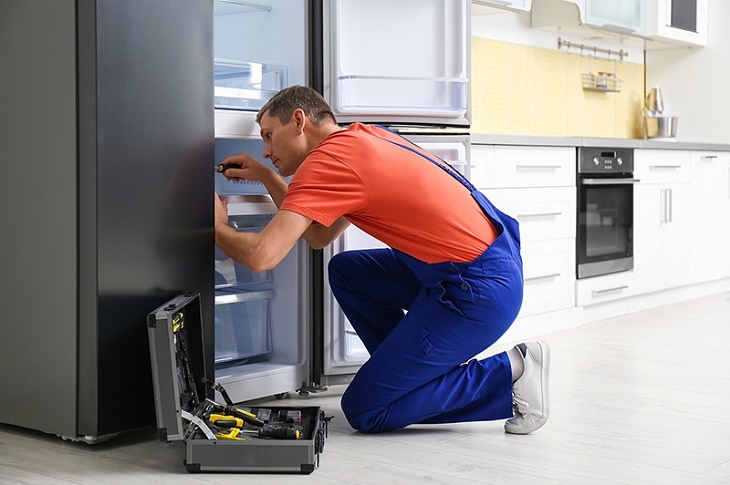
3 Methods to fix an open refrigerator door
To resolve the issue of an open refrigerator door, follow these steps:
Step 1: Adjust the base of the refrigerator to ensure that the front is slightly higher than the back.
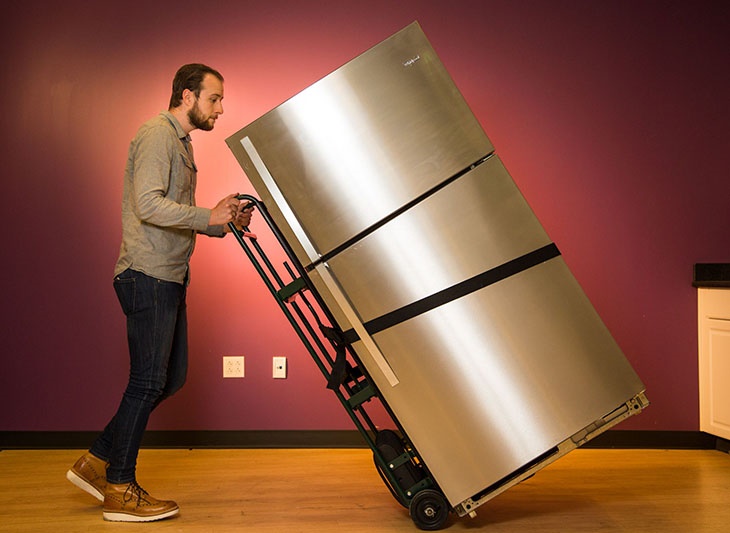
Step 2: Apply a thin layer of silicone lubricant to the hinges of the refrigerator door and rub it into the folds of the door seals. Check if the door opens and closes smoothly. Apply more lubricant if necessary.
Step 3: Tighten all hinges securely to ensure the door is properly aligned and closes tightly.
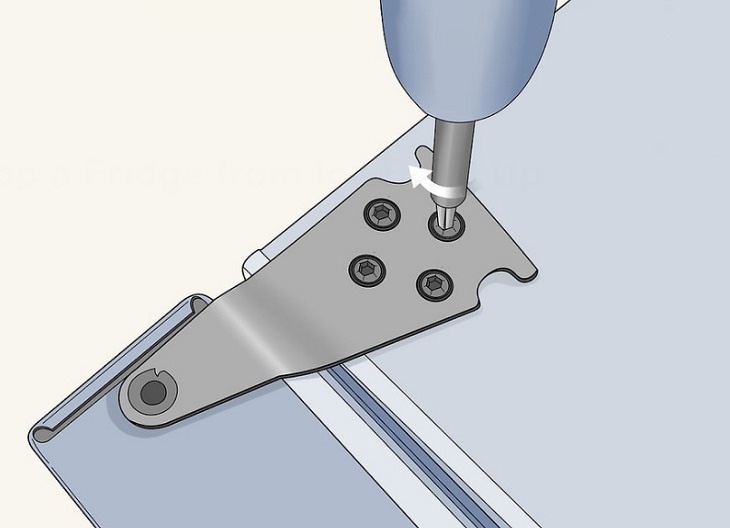
Step 4: After tightening the hinges, test the door to ensure it closes properly.
Step 5: If the refrigerator door still doesn’t close properly, check the rubber gasket on the door and replace it if necessary.
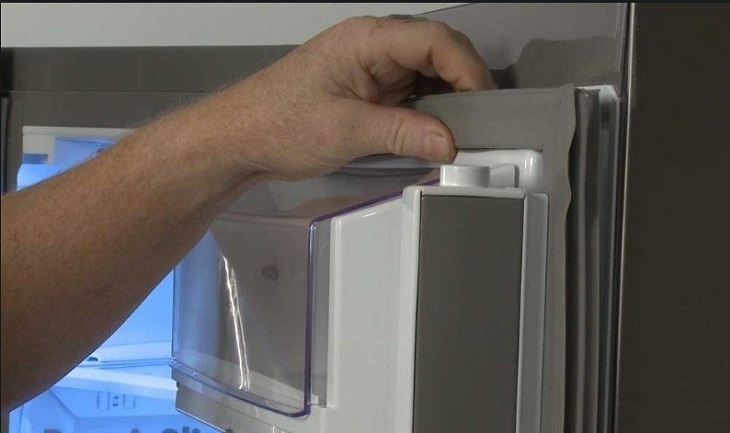
4 Notes to prevent an open refrigerator door
- Close the refrigerator door carefully and ensure it is fully closed.
- Regularly clean the refrigerator, remove expired or unnecessary food, and avoid overloading the door.
- Avoid placing excessive weight on the refrigerator door, especially heavy objects.
- Regularly clean and maintain the refrigerator, especially the rubber gasket.
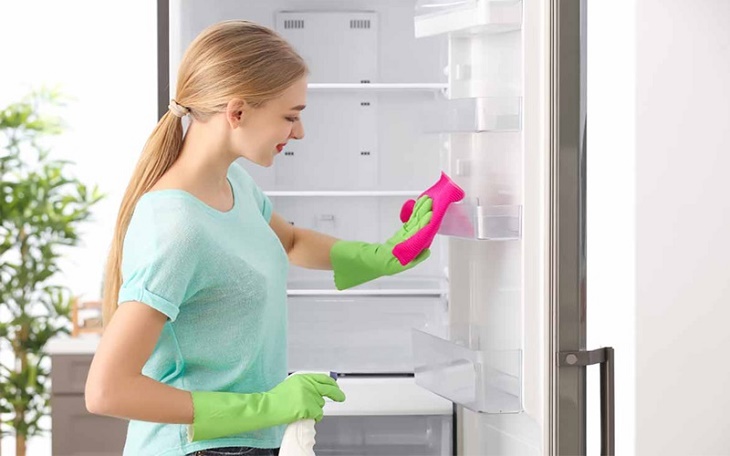
If the gasket is damaged, cracked, or no longer flexible, it should be replaced. Regularly checking the gasket can prevent cold air leakage and save on energy bills.
The above article has provided an overview of the causes, consequences, methods to fix an open refrigerator door, and preventive measures. Hopefully, this information will help you maintain your refrigerator in good condition. If you have any questions or would like to order products, please feel free to comment below!
Warning: 7 Potential Risks of Not Shutting Your Fridge Door that Can Result in Energy Loss
Do you ever forget to close your refrigerator door fully? If so, you should consider the consequences of this careless action. Read on to find out the potential problems that could arise when the refrigerator door isn’t shut securely, such as energy waste, a decrease in food freshness, and potential pest invasions. Learn why it’s essential to make sure your fridge door always stays tightly shut!
Greasing Your Door: An Ingenious Solution with Unexpected Benefits
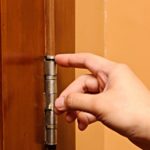 Door: An Ingenious Solution with Unexpected Benefits’>
Door: An Ingenious Solution with Unexpected Benefits’>Cooking oil is an ingredient used for cooking. Many people wonder what happens when you apply cooking oil to a door. Let’s find out.
























